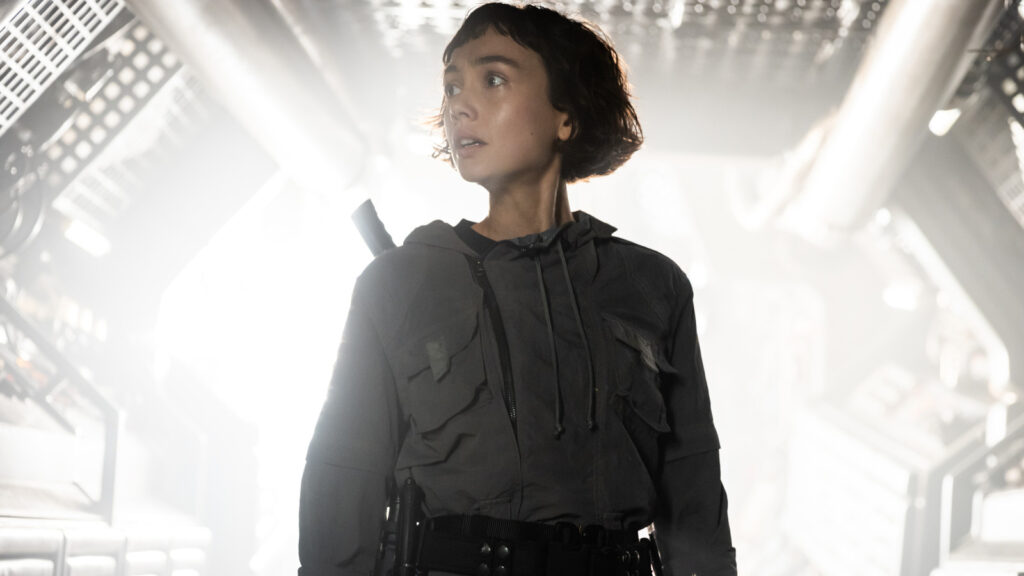Though the first episode of “Alien: Earth” is a sometimes disjointed whirlwind, there are immediate tonal and visual decisions that prove deeply, wonderfully immersive. The series retains the 1970s future aesthetic from the original film, suffusing it with a certain late 20th-century American decline vibe even as it takes us a century ahead of our present moment. It’s a smart decision, one that’s enhanced by things like music choices and, yes, Easter eggs that fans of the larger franchise will no doubt recognize. Narratively, there are pieces from throughout the franchise, from the haunted house in space feel of the original “Alien” to the action-horror-comedy of something like “Aliens” or “Alien: Resurrection,” but the show also owes a lot to the published-but-never-produced “Alien 3” screenplay written by cyberpunk icon William Gibson. It’s a series infused with the horror of “Alien” and the action of “Aliens,” yes, but it’s also a show of ideas on a grand scale, and that’s where things get really, really interesting.
At the center of all this is the alien creatures we all know and love infiltrating and rampaging through new environments, but the real emotional heart of the show is Wendy, and the world she’s waking up to as she adjusts to the new paradigms of her life. She is, like the Xenomorph itself, a stranger in a strange land, recognizing the world but not quite grasping her place in it, desperate for connections that will stabilize her worldview. It’s a deeply human story for her, and yet Noah Hawley often pulls back, revealing the greater machinery that made Wendy, and what each cog in that machine wants for themselves. Just as the Xenomorph might be an asset, contained and harvested and wielded like a weapon, Wendy is a product, the show floor model for a brand-new lifestyle adjustment available for the right price. The aliens that Wendy and her friends encounter across the series are parasitic beasts hoping to grow and evolve by latching onto hosts, and Wendy herself is beset by parasites of an entirely different kind. In a world where every decision is governed by money, and overseen by people who hold all the cards, what place does Wendy actually have? How much agency can she wield, and what happens when her goodwill and novelty run out? These are questions that have long been explored in the “Alien” franchise, a story for which corporate exploitation is just as important as monstrous cosmic intervention, and “Alien: Earth” is on track to be the fullest exploration of that idea yet. Sydney Chandler carries that emotion and thematic burden like a seasoned pro, making her the heart of the show even as Timothy Olyphant and Samuel Blenkin threaten to steal every scene.
“Alien: Earth” is an epic in every sense, a massive exploration of everything this franchise has touched on in the past and then some. That means that it begins as a sometimes unwieldy laundry list of sci-fi concepts, but once those concepts coalesce, the end of the two-part series premiere will have you hooked. It’s a sci-fi horror stunner that’s as timely as it is thrilling, and a must-see for “Alien” fans.
“Alien: Earth” premieres August 12 on FX and FX on Hulu.

